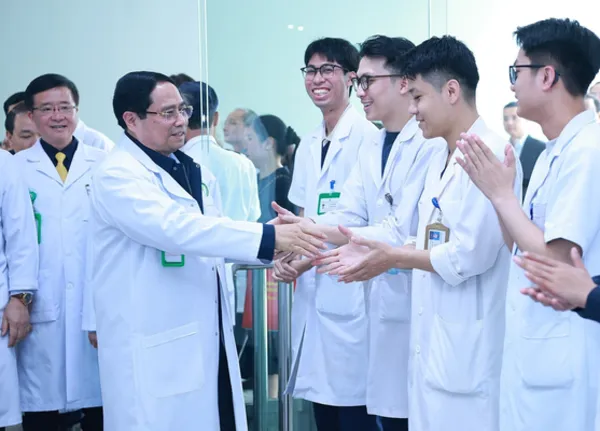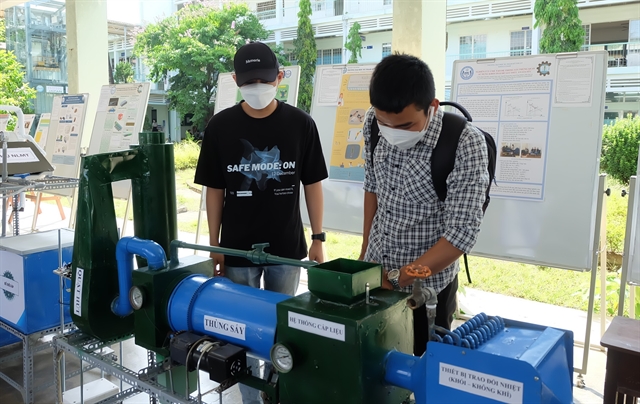 Society
Society

 |
| Visitors at a scientific research exhibition at Đà Nẵng University of Technology and Education. VNA/VNS Photo Văn Dũng |
HÀ NỘI — While there have been positive developments in scientific research in Vietnamese universities, experts said that there are many bottlenecks to address, in order to improve quality and efficiency.
Speaking to Giáo dục Việt Nam (Việt Nam Education) e-magazine, Associate Professor Bùi Hữu Đức from Vietnam University of Commerce said that many research projects, especially those in social sciences, had not responded to the requirements in technology transfer.
While the situation is partially due to procedures and awareness on the matter, insufficient communication and support in educational institutions was also a significant issue.
The lack of intermediaries, who have the rights to technology transfer, between organisations, individuals and researchers was another problem, he said.
According to Thái Nguyên University’s Associate Professor Ngô Như Khoa, the main reason for the low efficiency in university scientific research is the insignificant number of inventions that have actual applicability.
Meanwhile, scientists and lecturers, who form the majority of scientific and technological capacity in these educational institutions, could not respond to schedule and efficiency requirements in solving real-life social problems.
However, there have been positive changes in the investment for scientific research in universities.
Many schools have increased their budget themselves, especially for international publication, and not simply relying on state investments for science and technology.
While the government stipulates that higher education institutions need to spend at least five per cent of their revenue to invest and encourage science and technology activities, many have not fully disbursed this budget.
Đức said that some of the measures to take were improving research capacity for scientists and lecturers, alongside supporting policies for conducting scientific research.
He also suggested to encourage forming research groups and larger investment with orders for quality science - technology products, as well as financial support for international publications and grassroots missions in this field.
Another suggestion was teaching hours requirement could be reduced for researchers to have more time for quality research projects.
The associate professor also highlighted the need for attention from multiple stakeholders in improving scientific research work, which include the State, higher education institutions, businesses and associations.
"State agencies need to continue their work in developing and adjusting policies, while also conducting support activities, such as hosting sector-wide seminars on technology transfer among universities across the country," he said.
They could also provide training on technology transfer and the procedures required for science - technology departments in universities, and better management in budget disbursement for academic activities in this field.
Khoa also said that for science - technology research projects at ministry and national levels, it was necessary to review and adjust the mechanism for State budget allocation to universities and academies.
The suggestion was that capable education institutions proactively develop their proposal for loans from the government, in accordance with their capacity and the sector’s development trends.
This would help them create a roadmap for their science - technology activities, generating actual revenue through sales of research results to enterprises.
A repayment plan should also be developed, with the income from transferring intellectual property rights or commercialisation of research results.
In this scenario, the state would also need to closely monitor the implementation progress, and promptly halt investment for inefficient projects.
The topics of research at these levels would also need to focus on the key mission of respective sectors, ministries, and the government. — VNS